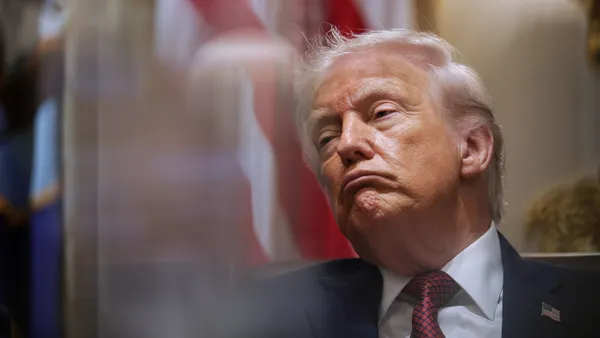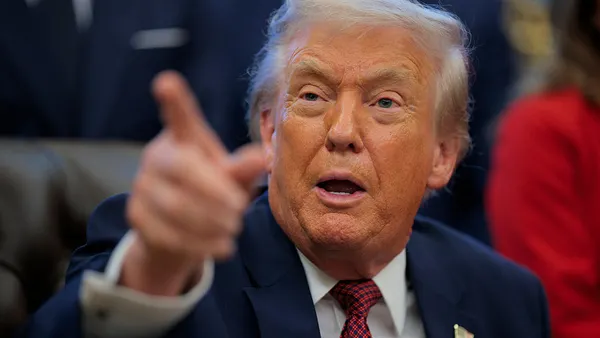Dive Brief:
- During their recent meeting, U.K. Prime Minister Theresa May and U.S. President Donald Trump agreed to begin trade negotiations immediately, in anticipation of a post-Brexit economic relationship, The Independent reported last week.
- May is particularly optimistic about the new beginning, believing that establishing a better foundation for trade with the U.S. could strengthen the UK economy and offer security to its business interests.
- Preliminary actions might entail quashing mobile phone roaming charges, a reciprocal acknowledgement of professional qualifications, and the withdrawal of both red tape and non-tariff barriers preventing some UK exports of specific agriculture and food products.
Dive Insight:
When the U.K. voted to leave to the European Union (EU) last year, global supply chain risk soared as companies with operations in the country were forced to consider the impact and shape of new terms of trade with the EU.
While some have begun to consider supply chain shifts, uncertainty has tempered in the months since the vote, and the most recent news seeks to further reassure businesses that a non-EU U.K. will not necessarily lead to higher operational costs. A new, bilateral trade deal between the U.S. and the U.K. will purportedly seek to reinstate the most important trade conditions from the previous deal with the EU, effective as soon as the Brexit takes place.
For that same reason, Trump and May had to pledge to begin talks immediately: free trade deals often take years to complete, and the U.K.'s reported timeline is 2019 — although much can still change. Neither Trump nor May are soft on trade, however, so negotiations could delay further.
An equally important implication of this news is that, despite rhetoric, the Trump administration is not against free trade altogether. Rather, the administration emphasizes better terms and enforcement in any trade deal. The U.S. and the U.K. have traditionally been friendly, but the announcement is a reassurance the Trump administration will seek bilateral trade agreements when the option seems reasonable.













